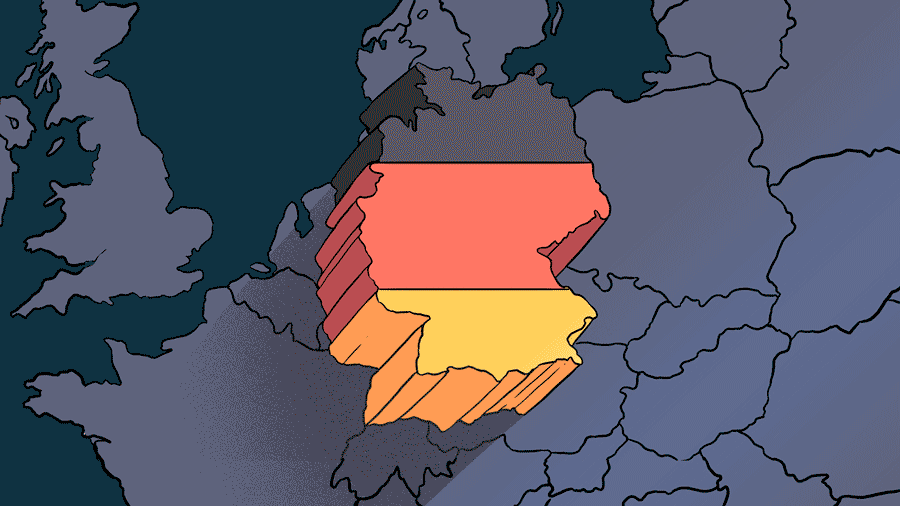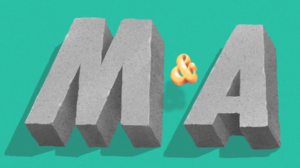In 2013, two-year-old process mining startup Celonis matriculated at German Accelerator Tech (GAT), a startup incubator backed by the German government. Founders spent the next three months with the accelerator in Silicon Valley, networking, attending workshops, and learning about American startup culture.
Follow Crunchbase News on Twitter
That experience continued to pay off for years down the road. Most recently, it came in the form of a $50 million Series B round at a $1 billion valuation, with backing from famed Valley VC Accel. That deal vaulted Celonis to unicorn status. But it was the trip a few years back that helped set the trajectory, said co-CEO Alexander Rinke.
“It introduced us to the Silicon Valley ecosystem, which is very important,” Rinke told Crunchbase News. “The customers we were introduced to, and a lot of entrepreneurs, all these things are important to me as a tech company to grow, and position yourself (in the U.S. market).”
Buoyed by the success of Celonis and other program grads, GAT has continued to strengthen the presence of German tech companies in the U.S. Yet while startups have made some inroads in their international expansion efforts, funding and exit data shows that Germany still has a lot of catch-up to do to in establishing itself as a leading hub for the next generation of tech industry giants.
Germany Leads In Lots Of Spaces, But Not Startups
As Europe’s largest economy, Germany takes global lead in high tech machinery, vehicles, chemicals and household equipment. However, while the country’s economic prowess is indisputable, Germany assumes a much more modest reputation in the tech startup scene. Germany, with about one-fourth the population of the U.S., secured around $3.4 billion in venture funding in 2017, less than one-twentieth the U.S. total, according to Crunchbase data.
“The idea was that we didn’t see any big tech companies out of Germany in the last 30 years,” Konstantin Krauss, a company scout for GAT, told Crunchbase News. “We didn’t have any new companies like Amazon and Google or Facebook, and the German government thought that this has to change.”
German Accelerator Tech is one of three sub-branches of German Accelerator, an incubator program that selects promising German startups and supports them in expanding their businesses outside the country. The other two branches focus on startups in life sciences and tech startups looking to expand in Southeast Asia.
With its offices in Silicon Valley and New York, GAT concentrates on bringing German tech startups to the U.S. market. Every quarter the incubator admits 8 to 10 companies, targeting “medium sized enterprises” that are incorporated in Germany and have products relevant to the U.S. market.
There’s plenty of demand. In the past 6 years, the incubator said it has received over 1,000 applications and mentored 161 startups. GAT estimates that 92 percent of these startups are still in business today. To date, at least 9 incubator participants have been acquired and 10 have raised over $20 million total funding.
GAT’s not the only government-backed program to boost entrepreneurship and global tech leadership. The German Federal Ministry for Economic Affairs and Energy built a program to elevate Germany’s presence in the digital economy. In addition to GAT, those efforts included High-Tech Gründerfonds, a VC firm, EXIST, a program to improve domestic entrepreneurial environment in higher education institutions, and INVEST, a funding program for angel investors.
A Focus On Global Expansion
One of GAT’s missions is to help German entrepreneurs establish business connections here in the U.S.. The incubator has U.S. entrepreneurs and industry experts mentor participants and help them develop marketing strategies for the U.S. market. Mentors also connect GAT participants with their own networks and introduce them to other investors, clients, and U.S. startup founders.
The goal is to help more German startups to become the next Celonis. Below, we look at the ten most heavily funded startups that the group has mentored:

Participating startups have a track record of global expansion, including in the U.S. For instance N26, a GAT class of 2018 alumni, now has an office in New York and is planning on launching its mobile banking service in the U.S. by early 2019.
Meanwhile, the newly debuted tech unicorn Celonis now has four offices across the U.S. The startup had its eyes set on becoming a global company since the beginning.
“From the very early days on, we had the ambition to build a global business. We never wanted to build anything else,” Rinke said.
This is the same message that GAT tries to convey to its participants: think big from the get go, and don’t be confined to the German market.
“Go to the European market as quick as you can and don’t stop there. Go to the U.S. market as quick as you can.” said Krauss. “Because this is the only chance that you can grow into a decent size and compete with U.S. startups and maybe also get some money from U.S. investors.”
- It should be noted that the top fundraiser, N26, was a well established company in Germany before it joined GAT in spring 2018. It recently raised a $160 million Series C led by Allianz X and Tencent.
Illustration: Li-Anne Dias

Stay up to date with recent funding rounds, acquisitions, and more with the Crunchbase Daily.


![Illustration of stopwatch - AI [Dom Guzman]](https://news.crunchbase.com/wp-content/uploads/Halftime-AI-1-470x352.jpg)






67.1K Followers